“No. We took it and let her go. You know damn well why I didn’t try to stop you. It was too good to pass up — the chance of seeing you tackle one that was absolutely impossible.”
“You’re prepared to assume that Mr. Blount is innocent?”
“Hell, I have to. As you say.”
“Then someone else is guilty. I begin by eliminating the cook and the steward.”
“Good. That simplifies it. Why?”
“Look at it. The arsenic was in the chocolate. Therefore if either—”
“No. Not known. The only arsenic found was inside Jerin. The pot was full of fresh chocolate, no arsenic, the cup was clean, and no container was found. Not known.”
“But it is.” Usually Wolfe’s tone had a trace of satisfaction when he corrected me, but that time he didn’t bother. “After four days of investigation the District Attorney charged Mr. Blount with murder. Blount couldn’t possibly have given Jerin arsenic in any medium other than the chocolate. Before arresting him, the possibility that the arsenic had been administered in some other medium had to be eliminated beyond question, and at that sort of inquiry the police are highly competent. Certainly they have established that Jerin didn’t swallow the arsenic before he arrived at the Gambit Club, and at the club he swallowed only the chocolate; otherwise they wouldn’t have charged Blount.”
“Check,” I conceded. “The cook and steward?”
“This is not conclusive, only strongly probable. There they were in the kitchen, preparing the chocolate. One or both of them knew Mr. Jerin, had reason to wish him dead, knew he was coming to the club, and knew the chocolate was for him. Confine it to one. He puts arsenic in the chocolate. At the time he does so he doesn’t know that Mr. Blount will come for it; he supposes that it will be taken to the library by himself or his colleague. He doesn’t know that later Mr. Blount will bring the pot and cup down and rinse them out. He doesn’t know that any club member has an animus toward Mr. Jerin — unless you think I should allow that?”
“No.”
“He doesn’t know if there will be an opportunity for anyone else to put something in the chocolate. He does know that the police will certainly discover his connection, whatever it is, with Jerin. But he puts arsenic in the chocolate?”
“No. At least we can save them for the last. Of course the cops have checked on them. With Blount and the cook and steward out, what you have left is the messengers. Unless someone sneaked in uninvited?”
He shook his head. “Mr. Blount told his daughter only that he thought not, he wasn’t absolutely certain, but his table was near the door to the library. And it would have been foolhardy. Only the messengers were supposed to go in to Mr. Jerin, and anyone else entering would have been observed and noted. It would have been rash beyond sanity. I exclude it, tentatively. But there is one other possibility besides the messengers, Mr. Jerin himself. He had arsenic in a soluble capsule, put it in his mouth, and washed it down with the chocolate. Shall I deal with that?”
“No, thanks. I don’t need help with that one. Deal with the messengers. I grant opportunity. He goes in to report a move, shutting the door. We assume that he shut the door on account of the noise made by the spectators moving around in the big room?”
“Yes.”
“Right. He knows that another messenger may enter at any moment, but he only needs five seconds. The pot is there on the table. Jerin, on the couch, has his eyes closed, concentrating. He has the arsenic ready, say in a paper spill, and in it goes. He wouldn’t have to stir it. Nothing to it. Shall I name him?”
“Yes indeed.”
“Ernst Hausman, the chess fiend. He had been against inviting Jerin to come, but since he was there, there was his chance at a guy who could give odds of a rook to Blount, who could beat him. He would have liked to poison all the chess masters alive, beginning with the world champion, who I understand is a Russian.”
“Botvinnik.”
“Not only a lusus naturae , but also a Commie. I know of no case on record where that was the motive, killing a man because he played chess too well, but everything has to have a first. I am not blathering. Hausman may be off the rails.”
Wolfe grunted. “Not may be. Is. If he would give a fortune to excel at chess. Then you dismiss the other three.”
“I file them. Until I take a look at Hausman. The client says they had never seen Jerin, though they may have heard of him, from her. Of course we might cut a motive to fit the lawyer, Dan Kalmus. He’s not really in love with her mother, he’s in love with her. Being a married man, if he is, he has to hide his passion for a virgin, if she is, so when he’s with the Blounts he ogles the mother as a cover. He has the impression that Sally has fallen for Paul Jerin, which could be true in spite of what she told you, and the thought of her holding hands with another man is unbearable, so he buys some arsenic.”
“That’s a little farfetched.”
“Murder is usually farfetched. Would we settle for making Blount merely an accessory? We have to assume he didn’t commit the murder, sure, but he could have suspected that Hausman or Kalmus had doctored the chocolate, so he took care of the pot and cup.”
“No.” Wolfe shook his head. “Our assumption is that Mr. Blount is not involved. He took the pot and cup, and emptied and cleaned them, because he thought that Jerin’s indisposition might have been caused by something in the chocolate — as indeed it had been. A natural and proper action.” He closed his eyes, but he didn’t lean back, so he wasn’t thinking, he was merely suffering. His lips twitched. After a dozen or so twitches he opened his eyes and spoke. “At least we have a free field. The police and District Attorney have Mr. Blount in custody and are committed; they have no interest in our targets except as witnesses, and of course they have signed statements from them. There will be no jostling.” He looked up at the wall clock. “Mr. Cohen is in his office?”
“Sure.”
“See him. Besides the published accounts we have information from only one source, Miss Blount, and we have no knowledge of either her competence or her veracity. Tell Mr. Cohen that I have engaged to inquire into certain aspects of this matter, and I need—”
“It’ll be tough — I mean for him. He’ll know that can mean only one thing, that you’ve been hired to get Blount out, and you think it can be done or you wouldn’t have taken the job, and to expect him to sit on that — I don’t know.”
“I don’t expect him to sit on it.”
“He can print it?”
“Certainly. As I told Miss Blount, my intervention can’t be kept secret, and the sooner the murderer knows of it the better. He may think it necessary to do something.”
“Yeah. Of course if — no. I’ll have to tie a string on my finger to remind me that Blount didn’t do it.” I got up. “If I don’t tell Lon who hired you he’ll assume it was Blount or Kalmus.”
“Let him. You can’t prescribe his assumptions.”
“I wouldn’t try. Any particular point or points?”
“No. All points.”
I went to the hall, got my hat and coat from the rack, let myself out, and nearly got pushed off the stoop by a gust of the icy winter wind.
In his own little room on the twentieth floor of the Gazette building, which had LON COHEN on the door but no title, two doors down the hall from the corner office of the publisher, Lon cradled the phone, one of three on his desk, turned to me, and said, “You may be in time for the twilight if it’s a quickie. Front page?”
Читать дальше
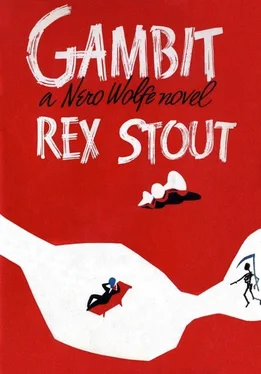
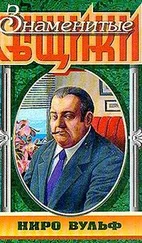
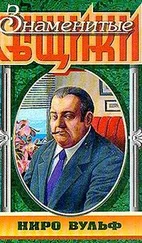

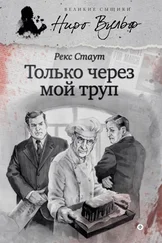

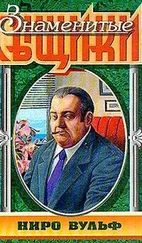
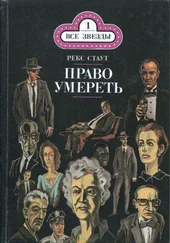
![Рекс Стаут - Лига перепуганных мужчин [litres]](/books/394342/reks-staut-liga-perepugannyh-muzhchin-litres-thumb.webp)